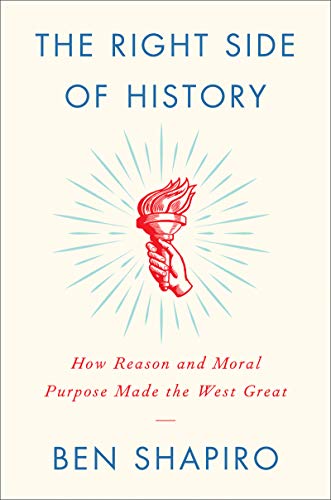A Brief Book Summary from Books At a Glance
By Benjamin J. Montoya
Editor’s Note: With this “Bonus” Book Summary we continue to address matters of (primarily) American cultural concern.
About the Author
Ben Shapiro entered UCLA at the age of sixteen and graduated summa cum laude and Phi Beta Kappa, and graduated Harvard Law School cum laude. At seventeen, Shapiro was hired by Creators Syndicate, becoming the youngest nationally syndicated columnist in the United States. He has appeared on hundreds of television and radio shows and is the author of the national bestsellers Brainwashed: How Universities Indoctrinate America’s Youth, Porn Generation: How Social Liberalism Is Corrupting Our Future, and Project President: Bad Hair and Botox on the Road to the White House. Shapiro is married and lives in Los Angeles.
Introduction
This book is about two things: why are things so good and why are we blowing it? Think about these two questions carefully because they sound so contradictory. We have things better today than ever before in a variety of ways and, yet, despite all of our progress, people have become more miserable, depressed, suicidal, and untrusting of others perhaps more than ever before. Why is that? This book will argue that the root of the underlying problem is that we have dispensed with the foundation of our society in favor of something else. What else have we chosen? Read this book to learn more.
Table of Contents
Chapter 1 The Pursuit of Happiness
Chapter 2 From the Mountaintop
Chapter 3 From the Dust
Chapter 4 Coming Together
Chapter 5 Endowed by Their Creators
Chapter 6 Killing Purpose, Killing Capacity
Chapter 7 The Remaking of the World
Chapter 8 After the Fire
Chapter 9 The Return to Paganism
Conclusion
Chapter 1: The Pursuit of Happiness
Many of us live very busy lives. Every day can seem like another merry-go-round of events. But when we step back at the end of the day, we will likely wonder eventually: are we happy? When we do not get to sleep much because of a crying child, tons of tasks at work, etc., are we really happy? The term “the pursuit of happiness” is one that our nation as founded upon. Our nation was constructed so that people could have the opportunity to pursue happiness, not the guarantee that they would obtain it. What changed?
Now people expect the government to make them happy. Trump built his campaign on that very point. He claimed that he would be able to do just that. And what is sad about is that many people believed him. Historically, including today, governments cannot make people happy. It is a fools’ belief to think so.
Of what, then, does happiness consist? It has four parts:
- Individual moral purpose
- Individual capacity to pursue that purpose
- Communal moral purpose
- Communal capacity to pursue that purpose.
At its core, happiness is the pursuit of purpose in our lives. When we live with purpose, even death becomes something that we think of as less painful. The foundation of the West is built on two things: divine meaning and reason. That is what the Bible is getting at when it commands people to serve God and identifies that moral purpose with happiness. Aristotle, too, suggested that we cannot achieve happiness with virtue, without a moral purpose.
But when we seek to remove these two things in favor of something else, we cannot hope to even have the option to pursue happiness. To discover where happiness comes from, we need to take a trip back to Mount Sinai.
Chapter 2: From the Mountaintop
When we look to Mount Sinai to learn how the Bible approaches our larger topic of happiness, we need to begin with context. The Bible presents an entirely different view of God than other cultures had. Most other cultures were polytheistic, believing in more than one god, and their gods were things they could see—things in nature.
The God of the Bible presents himself as entirely different. He is the only true God who is One. Because He claims to be the only God, He also claims the right to be the only One who can tell His creatures what to do. The Bible also presents God as in control over history, but not in a robotic way. He has given his creatures the ability to make real decisions. God holds us accountable for the real decisions we make. There is no doubt that God is in complete control, but He is not a tyrant.
[To continue reading this summary, please see below....]The remainder of this article is premium content. Become a member to continue reading.
Already have an account? Sign In
